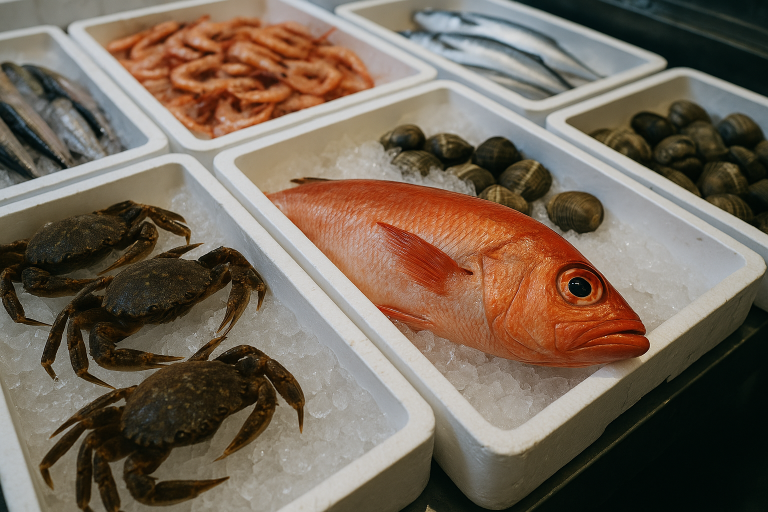China’s decision to halt imports of Japanese seafood has added new tension to a relationship already strained by political disputes and rising security concerns.
The suspension, reported by Kyodo News, underscores how economic tools are now being used to amplify pressure on Tokyo at a time when both governments are navigating deepening disagreements.
The move also follows renewed scrutiny of the treated water release from the Fukushima nuclear plant and arrives shortly after earlier restrictions were lifted in June.
The development suggests a shift in Beijing’s stance as both sides continue to struggle for stability in their diplomatic engagement.
Seafood freeze linked to ongoing disputes
Kyodo cited an unnamed government official who said the suspension was tied to China’s continued monitoring of the Fukushima water discharge.
The renewed halt comes after a period of partial easing and indicates a sharper focus on both environmental concerns and the broader political climate.
The announcement followed talks between officials that failed to improve the situation.
Liu Jinsong from China’s Foreign Ministry said he was dissatisfied with the results of his meeting with Japanese diplomat Masaaki Kanai on Tuesday.
The talks took place during a period marked by rapid deterioration in the political atmosphere between the two countries.
Taiwan remarks intensify political friction
Tension escalated after Prime Minister Sanae Takaichi became the first Japanese leader in decades to publicly link a potential Taiwan crisis with the possible deployment of Japanese troops.
Beijing responded immediately and warned that further actions could follow.
During the meeting, Kanai stated that Japan’s position on Taiwan had not changed.
He also raised concerns about statements made by Xue Jian, China’s consul general in Osaka, who posted a violent threat toward Takaichi on X before deleting it.
Kanai called for immediate measures in response to the post and repeated Japan’s objections to the language used.
Economic risks spread across sectors
Seafood imports from Japan have already dropped significantly since 2024, when China first tightened restrictions.
Chinese customs data for the first nine months of the year recorded only about 500,000 dollars in imports of fish, crustaceans, and related products.
Travel-related sectors have also been affected.
Beijing’s warning advising Chinese citizens against visiting Japan led state-owned travel agencies to cancel group tours that had been planned months in advance.
The advisory triggered a sharp selloff in Japanese tourism and retail stocks before they recovered some of their losses.
Chinese state firms have told employees to avoid travel to Japan.
Staff at investment groups, brokerages, banks, and other institutions received cautionary instructions this week.
Concerns are growing that China may again resort to trade measures during political disputes.
More than a decade ago, Beijing halted shipments of rare earths during a territorial standoff.
Japanese industry groups say a similar scenario cannot be dismissed today.
The Foreign Trade Council said the situation could contribute to rare earth supply risks and that businesses would request action from authorities if necessary.
Security rhetoric grows sharper
Beijing has demanded that Takaichi withdraw her remarks on Taiwan.
State media described her comments as a sign of rising militarism in Japan and warned of consequences if they are not retracted.
The Ministry of State Security echoed these concerns in a social media post and referred to recent espionage cases involving Japan, though no further details were provided.
China’s Taiwan Affairs Office said Takaichi’s statement attempted to revive militaristic attitudes that threatened international justice.
The spokesperson also said Japan should stop interfering in issues China considers domestic and should avoid further provocations.
Historical symbolism adds a new dimension
Symbolism around diplomatic meetings has also drawn attention.
During the talks, Liu Jinsong wore a tunic-style suit similar to those associated with student activists from the May Fourth Movement of 1919.
A state media-linked social account noted the resemblance and linked it to historical resistance against Japan and calls for boycotts of Japanese goods.
The post China escalates pressure on Japan with seafood import freeze appeared first on Invezz

